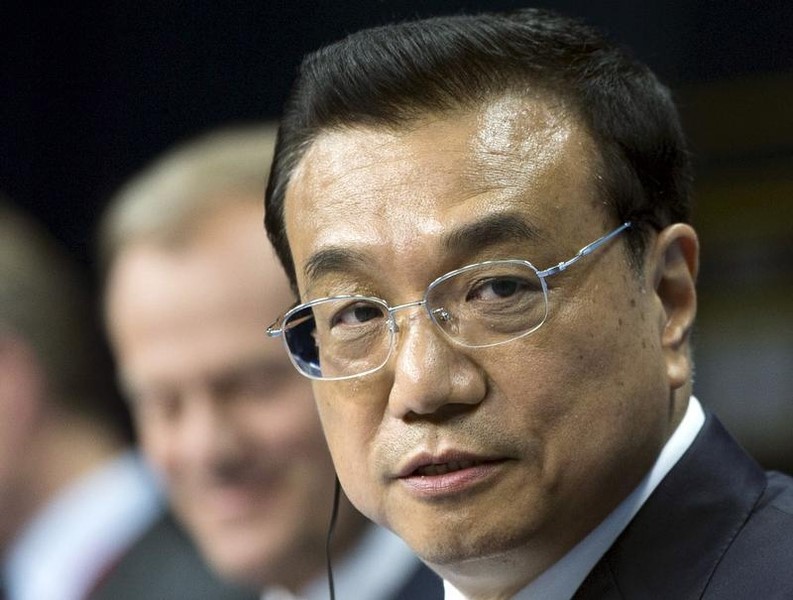By Philip Wen and Ben Blanchard
BEIJING, March 21 (Reuters) - China expects positive moves to signing up Australia for its New Silk Road initiative when Premier Li Keqiang visits this week, but two sources familiar with the issues said the Australian government is likely to bide its time before committing.
The plan, officially called the One Belt, One Road, or OBOR, initiative, is a signature foreign and economic policy of Chinese President Xi Jinping, envisioning massive infrastructure spending to link China to Asia and beyond.
Chinese Vice-Foreign Minister Zheng Zeguang told reporters on Tuesday there are "many opportunities and space for cooperation" between China and Australia for One Belt, One Road, a subject he said Li would bring up on his Australia visit.
"I believe these discussions will have positive results," Zheng said, without elaborating.
Discussions over a potential Belt and Road memorandum of understanding began in October last year, while Xi first raised Northern Australia as a potential Belt and Road investment destination during his visit to Australia in 2014.
"The information in just the past one or two days is that there will be no memorandum signed as hoped," one source told Reuters, speaking on condition of anonymity.
"There will definitely be opportunities for this and further cooperation in future," the source added, citing a big OBOR summit to be held in May in Beijing or later in the year when Australia and China mark 45 years of diplomatic relations.
But another source said the Australian side was taking a "wait-and-see" approach to gauge how other major Western economies reacted to China's overtures.
The Australian government did not immediately respond to a request for comment.
China is Australia's biggest trading partner and the two have a wide-ranging free trade deal.
Australia is also a staunch U.S. ally, despite discord between Canberra and the new administration of U.S. President Donald Trump, who has killed off an ambitious regional trade pact the Trans Pacific Partnership, and labelled a refugee swap deal with Australia as "dumb".
Australia has previously drawn criticism from China for running surveillance flights over disputed islands in the South China Sea and called on China to obey international norms in the strategic waterway.
Last week while in Singapore, Australian Foreign Minister Julie Bishop suggested China could never reach its full potential unless it embraced democracy.
Asked about Bishop's comments, Zheng said the two countries have had a successful relationship over the past 45 years because they both respected each other's societal and historical differences.
"In the future we hope friends in various fields in Australia can uphold this spirit, abandon 'you win, I lose' and ideological prejudices," he said.
Li visits New Zealand after Australia.
